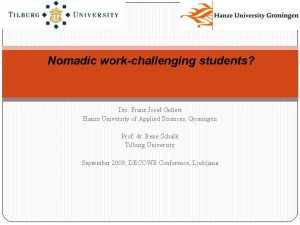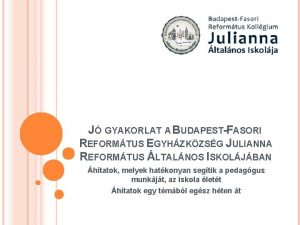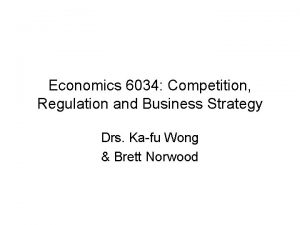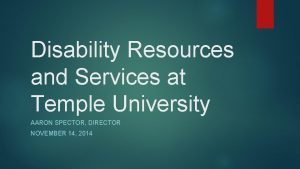Nomadic workchallenging students Drs Franz Josef Gellert Hanze












- Slides: 12

Nomadic work-challenging students? Drs. Franz Josef Gellert Hanze University of Applied Sciences, Groningen Prof. dr. Rene Schalk Tilburg University September 2009, DECOWE Conference, Ljubljana

1. Problems 2. Questions 3. Research sample 1 4. Research sample 2 5. Methods 6. Results: 7. Conclusion 8. Practical implications for students 9. Future research 10. Discussion 2 2

Problems Financial Crises Many workers are laid off Changes in work Redesign of work places Different needs and wishes of employers and employees Barriers of labor market entry (students) 3 3

Questions • What are students’ expectations with regard to nomadic work? • What are the experiences of workers with respect to nomad work? • Are there, from a managerial perspective, differences in nomadic work across countries? 4 4

Research sample 1 175 students in 2 Universities in Germany Research sample 2 145 employers and 171 employees from Germany, the Netherlands, United Kingdom, Uganda and Israel 5 5

Methods (multi-methods) Sample 1 questionnaires Sample 2 questionnaires and interviews 6 6

Results: Q 1: students have a higher preference for autonomy than for nomadic work. The preference for nomadic work predicts the choice for employer, especially for employers that focus on providing financial benefits and opportunities for development. Q 2: nomadic work is beneficial and challenging for both employers and employees. Q 3: indeed some differences were found 7 7

Conclusion Nomads are highly skilled people, well educated students Nomads are flexible workers Nomads are likely to become more present in organizations Nomads are employees of the future Nomads manage WLB properly Nomads discover new career opportunities Nomads are highl motivated (regardless age or gender) 8 8

Practical implications for students Learning in diverse teams Intrinsic motivation Flexibility, mobility Learning and training of social skills Network building and network maintenance Openness See opportunities and challenges Take new career paths 9 9

Future research physical and psychological effects (mental and physical stability) Balance of work and non-work activities Longitudinal research Impact of nomad work on economical factors Business related differentiation of nomadic work (Benchmarking, balance score card) 10 10

Discussion-Questions? 11 11

Questions? 12 12























